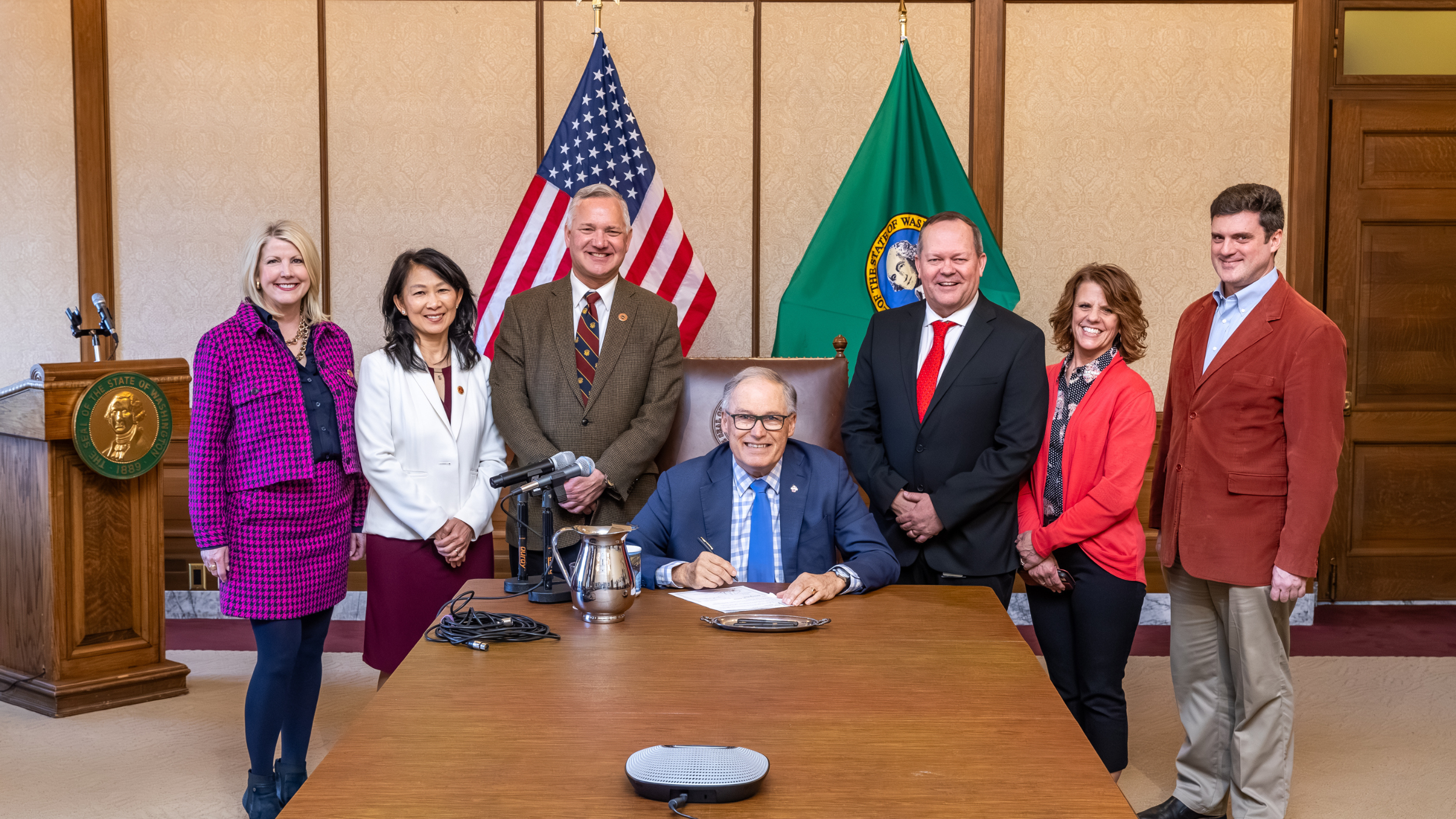
March 7 marked the official conclusion of the 2024 Legislative Session. Here’s the breakdown of the significant measures that either passed or failed.
WR is largely satisfied with most of the results of the issues engaged and tracked on behalf of members and the retail industry.
As legislators return to their districts, many are facing re-election, with all 98 House members and half of the Senate up for reelection this year. Bills and budgets that have been approved are now awaiting review by the Governor. The Governor has 20 days to take action, which includes signing the bill into law, vetoing it, or vetoing specific sections. Failure to act will result in the bill automatically becoming law.
Following the Governor’s decisions, WR will compile the Legislative Law Review, offering a comprehensive report on the outcomes of the bills. This service is exclusive to our dues-paying members.
This report serves as a condensed overview of the key issues focused on during the session.
Initiative 2113: One of the most significant victories of this session was the approval of Initiative 2113, enabling law enforcement to once again safely pursue retail thieves and property criminals in their vehicles. This initiative addresses a previous legislative error that banned police pursuits, leading to a surge in crime. Passage of Initiative 2113, effective June 6, 2024, sends a clear message to criminals and enhances safety in stores, ultimately deterring retail theft and combating organized retail crime. This will lead to more vibrant communities across Washington.
HB 1893: Conversely, HB 1893 posed a significant threat to the retail industry and the state by mandating unemployment compensation for striking workers. Washington’s unemployment insurance system provides the highest level of benefits in the nation to workers who lose their jobs through no fault of their own. The system is entirely funded by employers. Thanks to a coalition effort, including WR, this measure was successfully curtailed. Enactment of this bill could have imposed billions of dollars in costs on employers and undermined the unemployment insurance system.
HB 2094 / SB 5987 and HB 2095 / SB 5988: Several bills attempted to penalize both retailers and customers by confiscating expired gift cards, taking them away from purchasers, and transferring them to the State for their revenue. Through the efforts of WR and the Save Our Gift Cards Coalition, HB 2094, 2095, and SB 5987 and 5988 were defeated, despite various tactics employed by proponents. Interestingly, proponents of the bills used every trick in the book including an effort to insert language into the budget to keep the misguided issue alive. Thankfully, the coalition was able to alert policymakers to strip the amendment before passage.
SB 5770: Another costly bill WR helped stop was SB 5770, which aimed to remove the voter-approved 1% property tax lid and allowing local governments to increase it to 3%. This would have potentially led to substantial property tax increases statewide.
HB 2049 and HB 2144: WR collaborated closely with stakeholders on HB 2049, the WRAP Act (Washington Recycling and Packaging Act), and HB 2144, the beverage container recycling program. WR and its members spent considerable time working on reaching a consensus on which industries would be responsible for paying into an extended producer responsibility program. Our hesitation and concern was focused on the fact that no other state has fully implemented this type of system.
Four states have adopted similar programs legislatively and are working on implementation. We support waiting to see what lessons Washington can learn from the other states before adopting our own. Additionally, a thorough needs assessment county by county should be conducted to ensure any system created will have the best chance for success. While these bills failed to progress, we anticipate their return in future sessions.
SB 5838: WR successfully advocated for clearer definitions and clarifications in SB 5838, establishing an artificial intelligence task force. The original bill had an unmanageable task force of over 40 members. WR was able to convince decision-makers to narrow the focus to 12 and include retail at the table. By streamlining the task force’s focus and including retail representation, the bill was improved.
SB 6296: Additionally, WR led the effort on SB 6296, establishing a retail industry workgroup within the State Board for Community and Technical Colleges. This measure, unanimously supported in both chambers, will require the workgroup to report on best practices, for stackable credentialing, and identify barriers and opportunities for both programs and individuals for high-quality credentials in the retail sector.
HB 2301: HB 2301 aims to enhance food waste management to mitigate climate change through seven key programs. WR supported the final session bill after collaborating with stakeholders and the prime sponsor, Representative Doglio, to incorporate WR’s requested amendments. These amendments include exemptions for entities from local organic waste collection services when businesses use an alternative mechanism with equivalent effectiveness. Additionally, mandates for a state-based food date-labeling standard and compostable produce stickers have been eliminated.
SB 5368 and HB 2127: Unfortunately, SB 5368, passed out of the Senate with broad bi-partisan support, yet failed to pass. This bill would allow injured workers to perform light duty, and return to work at a non-profit if their employer did not have a position.
We are pleased, however, that HB 2127, which will double the wage reimbursement to employers that provide a light-duty return to work opportunities passed unanimously in both Chambers. HB 2127 is a direct outcome of WR’s work on SB 5368.
SB 5160 and SB 5056: Furthermore, two retail theft bills, SB 5160 and 5056, which sought to increase penalties for organized retail crime rings that use multiple accomplices and retail theft habitual or repeat offences, faced setbacks in the House committee. Despite passing the Senate, these bills were held up, delaying efforts to combat organized retail crime.
To conclude on a very positive note, WR was pleased to support the inclusion of funding in the budget for three retail theft pilot programs focusing on both diversion programs and organized retail crime and retail theft prevention efforts.
Please note that at the time of this report, the Governor is still deliberating on the fate of the passed bills, and WR has communicated our position.

